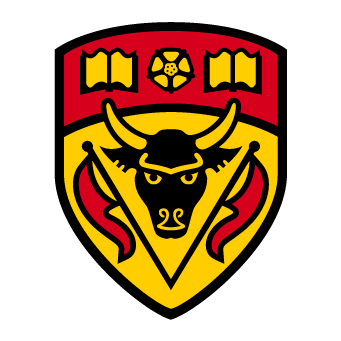Call For Papers (now closed)
Communication as a discipline is interested in the cultural conversation that occurs through media; how are cultural ideals or goals, norms, identities, and ideas mediated? Other disciplines have studied communication through their own unique lenses, pursuing research questions through their own theories and methods. The interdisciplinary conversation that can occur when disciplines come together has never been more important than during cultural moments of significant change. Our strength in the humanities can be found in our ability to work and learn together to solve our big, wicked, and messy social problems so that we may contribute meaningfully to our societies. Our strength lies in gathering together and holding interdisciplinary conversations that unite rather than divide.
Details
Date: May 1st and 2nd, 2025
Time: 9:00 a.m. – 5:00 p.m. (both days)
Location: The University of Calgary, Calgary AB
Cost: Travel; accommodation; breakfast and evening meals; and transportation. The conference itself is free to attend.
Included: Coffee/tea/water and lunch (both days)
Open to: All active graduate students whose research engages with film, media, and communication studies in some aspect. Undergraduate honours students (for those participating in research and planning to attend graduate school).
Call For Papers Now Closed. Applicants will be contacted soon with results.
In keeping with a theme of interdisciplinarity, we intend for you to find yourself in conversation with folks from different disciplines than your own. In seeking to bring disparate research areas together in conversation, we have made our theme as broad as possible as we want you to see yourself at this conference. Your research might be situated within the realm of, but is not limited to:
- Narrative and storytelling in media culture, including genre studies
- Mediated meaning making
- Mediated community, society, and culture – broadly
- Embodiment, identity, and subjectivities in media
- Representations of class, sex, gender, race/ethnicity, age, and ability in media
- Mediated power, social movements, and activism
- Cinema, Podcast, Porn, Photography, Video Game, Cultural, Legacy, and Digital Studies
- This list is only suggestive as we welcome research from any discipline that engages with film, media, and communications.
Our conference aims to decolonize knowledge creation and sharing and to bring a feminist ethic of inclusivity to our work. We aim to embrace the rough edges of what is considered research and who can participate in knowledge creation.
To that end, there are many ways in which you can become involved in this conference. We welcome:
- Visual submissions to a gallery space
- Traditional paper presentations
- Pre-constituted panels
- Roundtable presentations
- Curator-hosted short films
- Research creation projects and community-based research projects.
For more information visit Research Options.
How to apply
All submissions must come through the portal.
- The various options for participating in the conference will be available on our application form for you to select
- You may select more than one category.
- For example, as an undergraduate student, you may select a research poster presentation and the mentoring roundtable opportunity.
- As a PhD student, you might offer to moderate a panel, mentor undergraduate students, and submit a paper for a panel.
We hope that if you are attending this conference, you will find a way to get involved in your scholarly community by volunteering.
While you may submit more than one paper or project, each submission must be entered into the website portal separately.
Regardless of the type of research submission, please provide an abstract of your research up to a maximum of 250 words to assist the organizing committee in panel/roundtable creation.
Each panel will have the necessary equipment to accommodate PowerPoint presentations. For roundtables, please be prepared to share visuals on your own laptop.
We welcome you to attend the conference regardless of your desire to present research.
Volunteering and Professional Development Opportunities
You may submit to attend the conference on a volunteer only basis with no research presentation planned. Those interested in volunteering at the conference will not need to submit an abstract for that role but must still apply through the website. However, given our limited funding, our conference is capped at a maximum of 50 participants, and priority will be given to students presenting research in some format.
Please visit Volunteer Opportunities for more details about volunteering, mentoring, or receiving mentorship as an honours undergraduate.
Keynote
Our keynote speaker for this year will be announced shortly via our website.
Next steps
We aim to provide acceptances early to mid-March, providing approximately six weeks for preparation. If you are accepted, you will be asked to provide a personal biography at that time.
We look forward to reviewing your submissions and engaging in invigorating inter- and multidisciplinary dialogue, knowledge sharing, and community building with you in Calgary!
Contacts
For any questions or concerns about
- accessibility needs
- communications
- website or portal issues
- proposal withdrawals
- or anything else we might address, please contact us.
Land Acknowledgement
The University of Calgary, located in the heart of Southern Alberta, both acknowledges and pays tribute to the traditional territories of the peoples of Treaty 7, which include the Blackfoot Confederacy (comprised of the Siksika, the Piikani, and the Kainai First Nations), the Tsuut’ina First Nation, and the Stoney Nakoda (including Chiniki, Bearspaw, and Goodstoney First Nations). The City of Calgary is also home to the Métis Nation of Alberta (Districts 5 and 6).
The University of Calgary is situated on land Northwest of where the Bow River meets the Elbow River, a site traditionally known as Moh’kins’tsis to the Blackfoot, Wîchîspa to the Stoney Nakoda, and Guts’ists’i to the Tsuut’ina. On this land and in this place we strive to learn together, walk together, and grow together “in a good way.”

Leave a Reply